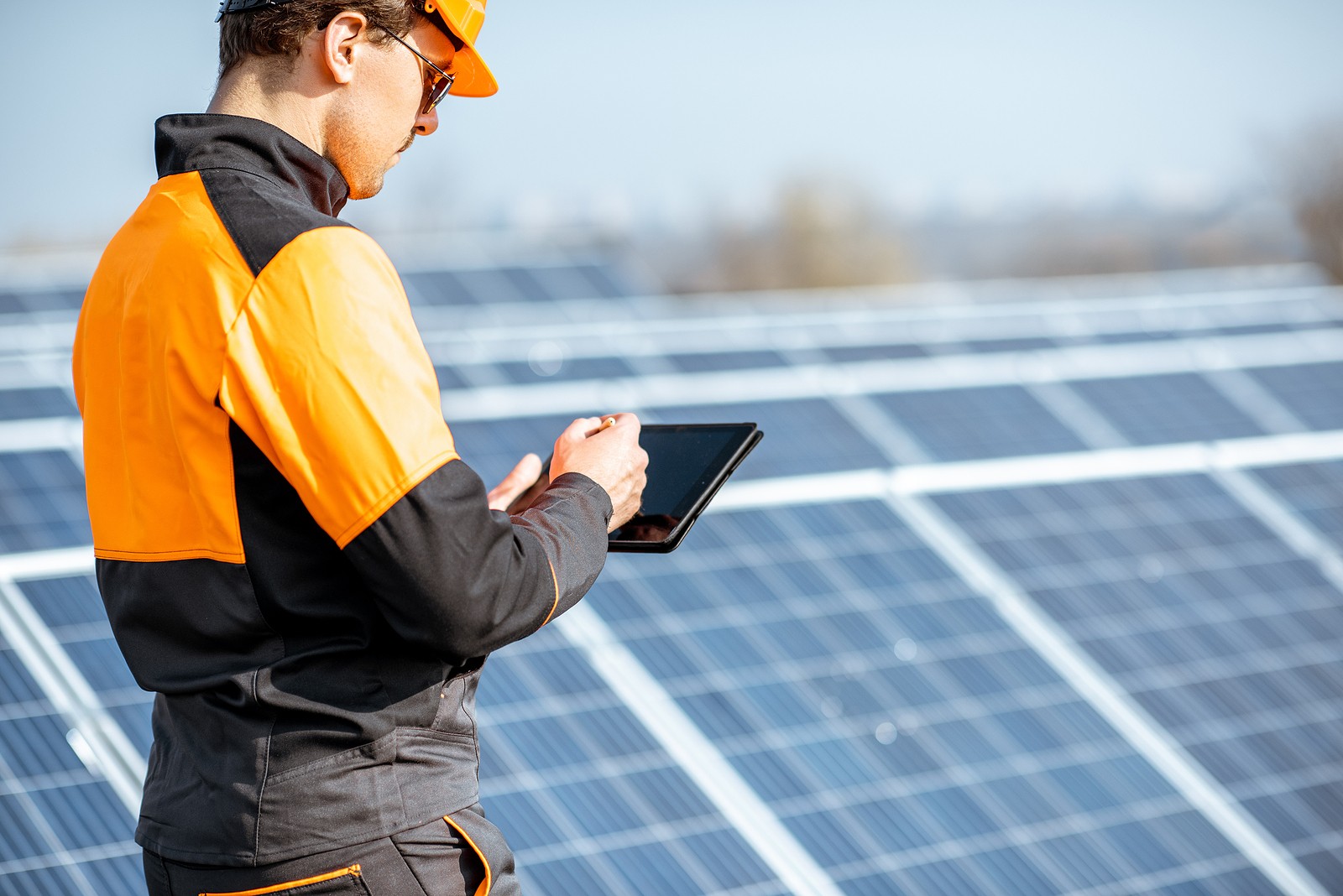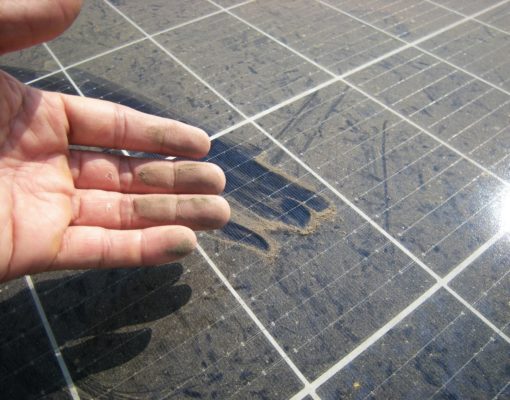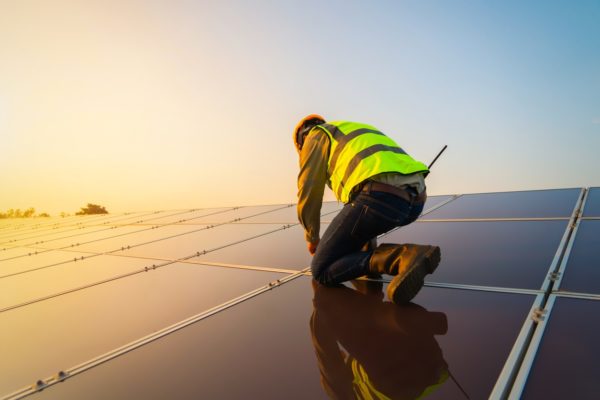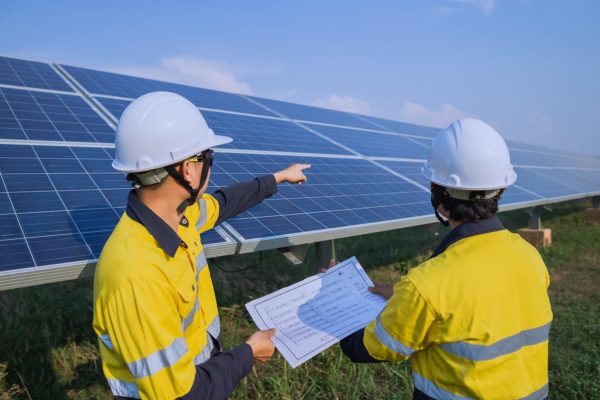
Installing commercial solar panels is a great way to reduce your carbon footprint and save on energy expenses. They are not only economical, but also may last up to 25 to 30 years. That means switching to solar gives your company plenty of time to experience a return on investment.
But getting the most value out of a solar panel system or maximizing its durability benefit is only possible when you know how to properly maintain it. Additionally, maintaining the solar power system is crucial to keep it running efficiently.
Learn about the solar panel maintenance requirements, signs your solar system needs maintenance, and steps you need to take for proper maintenance below.
Signs a Solar Power System Needs Maintenance

Beyond routine inspections and cleaning, your solar power system typically requires little maintenance. However, there are some warning signs to watch out for that can mean your panels need maintenance earlier than expected.
Reduced energy generation is the clearest sign that your commercial solar power system requires maintenance. If the solar energy panels are not generating the energy your business facility requires or suddenly, your energy bills have increased, you need to schedule maintenance.
Cost of Maintaining a Solar Power System
Most firms annually employ a professional solar power inspector to examine and clean their solar panels. Hiring a qualified specialist is safer because many solar power systems are on the roof. The good news is that your maintenance costs will be low even if you hire an expert.
According to Home Advisor, the typical yearly maintenance expenditures of a solar panel system are roughly $150 to $450 for an inspection once a year. If there is damage in the solar system or you need to clean the panels more frequently due to dirt or debris gathering more quickly, your maintenance costs can be slightly higher.
Some solar panel installers offer maintenance as part of the purchase price, while others offer service plans for a separate fee. These service plans typically cover regular cleaning and maintenance to ensure the optimal performance of your solar panels. It’s essential to check with your installer to see what options are available and what is included in the maintenance agreement.
Solar Panel Maintenance Checklist
1. Check If Your Solar Panels are Secure and in Good Condition
Cleaning solar panels should be integral to your regular annual maintenance routine to maximize efficiency. The solar panels should be thoroughly inspected because dirt can build up on them. As a result, solar cells can potentially become coated with debris and sap, which lowers their energy production.
If panels have a dirt coating, cleaning professionals will gently remove any tougher particles of dirt with a soft brush or cleaning item like a sponge to keep the panels safe.
It’s crucial to clean panels when the weather is cooler. Therefore, most solar panel maintenance experts will clean the panels in either the late afternoon or morning. They also inspect the panel infrastructure to ensure it is firmly in place and free from damage.
2. Record Solar Electric Power Generation
The solar panel wattage ratings depict the ideal situation on a sunny summer day. In general, solar panels provide less energy compared to this. Therefore, monitoring the performance of your commercial solar panels over time is the best method to determine whether performance has declined.
You can begin by assessing performance at lunchtime once a month. Do this for a whole year until you have enough ratings to compare the highest and lowest performance situations and levels. Once you record solar electric power generation, note the average.
With this data, is it possible to prepare for future years. You should ideally employ an accessible interface that displays and saves this data. Then, it is simple to note particular trends and make necessary plans.
3. Review the Maintenance Guidelines of Your Commercial Solar Panel Manufacturer
Note that the brand and solar panel type vary widely in how manufacturers recommend maintenance for the panels. Reviewing the maintenance guide containing information specific to your commercial solar panels is ideal.
Generally, the manufacturer provides guidelines about:
- Whether the panels are walkable
- How much weight the walkable panels can support
- What materials to use or avoid using
- How frequently to clean the panels
Be aware that providing insulation to solar trackers throughout the winter is part of maintaining solar panels in colder climates. Thanks to the insulation, they are kept from freezing and breaking off when withstanding wind gusts.
4. Check Commercial Solar Panels for Corrosion
You should inspect your commercial solar panels for rust, aging, and damage at least twice a year. Business facilities, particularly those located within coastal vicinities, should ensure the inspecting of commercial solar panels for rust and corrosion.
Although commercial panels are built to survive, you need to keep them in the proper condition to perform optimally. Corrosion is likely to spread through tiny spaces if the vacuum-sealed rear sheet of your commercial solar panel has fractured and they get wet with water or dirt. This can quickly result in irreparable damages.
Commercial solar panels should be maintained to be as long-lasting and energy-efficient as possible. Still, if you don’t maintain your solar system, rust or weathering can lead to various issues, from decreased output to potential safety risks, requiring a call to an installer right once.
5. Check Panel Wiring for any Damage
Checking the wiring of commercial solar panels is vital to ensure their proper functioning and to detect any faults or potential safety hazards. This helps to prevent power loss and increases the lifespan of the panels and system components. Regular inspections also help to identify and resolve issues before they cause more significant problems, saving time and money in the long run.
It is important to ensure that there is no damage to the commercial solar panel. If water seeps into any of the gaps or ports of the panels, this can cause short circuiting. Maintaining your wiring so it is in excellent condition is crucial since a shortage might harm your safety. Never attempt to repair a damaged wire on your own. Call your installer right away if you need help.
6. Ensure that the Isolator Switches have Clear Access
A clear path to the commercial isolator switch is crucial in an emergency. Make sure this region is accessible because this is the only location where you can manually disconnect the solar power system. The switch is activated when maintenance experts upgrade, repair, or complete maintenance on commercial solar panels.
7. Ensure Regular System and Electrical Fault Checks
You may inspect your commercial solar system regularly to ensure everything is operating as it should and that there are no electrical issues with an inverter panel. Your solar installer can fix any potential ground problems. This is crucial because, if neglected for an extended time, it may result in electric shocks.
It might be time to upgrade if you discover that your panel is less effective or if the light in the inverter has turned from green to red. Find out what a Fault Code is to determine where there are electrical and installation issues.
8. Maintain a Logbook
Maintaining your commercial solar panel logbook to record maintenance work and repairs is always a good idea. It may also include inspection schedules or component replacements as needed.
9. Repairing Commercial Solar Panels
If you discover any concerning issues in your commercial solar panels, it is always recommended to contact your solar panel contractor. They can immediately arrange an assessment, repair, or replace the damaged components.
Avoid letting a minor issue become severe by purchasing new solar product when necessary. Contacting your commercial solar panel provider is also the right option if you have questions regarding panels or how their damage coverage works.
10. Inspect Your Commercial Solar Panels Monthly
Monthly inspections of commercial solar panels are recommended to ensure optimal performance and promptly detect potential issues. Solar panels are exposed to various environmental factors such as wind, rain, hail, and temperature fluctuations that can cause wear and tear or damage over time.
Regular inspections can help identify these issues and prevent them from becoming more severe or costly. It also helps to ensure that the panels produce the expected amount of energy, maximizing their efficiency and return on investment.
Solar Maintenance Services from Coldwell Solar

Regular inspection and maintenance of your commercial solar panels will improve both efficiency and output. Regardless of the company hired to install your commercial solar panels, Coldwell Solar is happy to provide maintenance for commercial enterprises, agricultural businesses, and large utility solar systems. You can rely on us as maintenance experts, whether it’s dust build-up on your commercial solar panel or damage to the inverter, we are here to help. Contact us today to learn more about the commercial solar services we offer!


